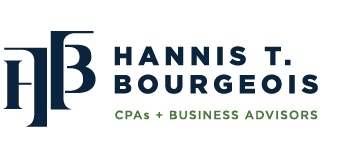Strategic Growth Begins with Smarter Accounting Technology
Across the financial landscape, technology has transformed how modern businesses and accounting teams operate. The reliance on spreadsheets and manual data entry is rapidly shrinking as firms adopt software that automates processes, reduces errors, and delivers real-time insights. These advancements empower organizations to shift from reactive bookkeeping to strategic, data-driven decision-making. A thorough accounting technology assessment ensures your financial infrastructure is optimized for growth.
What Is an Accounting Technology Assessment?
An accounting technology assessment is a comprehensive review of your financial processes and the tools that support them. It evaluates how well systems integrate, how automation handles repetitive tasks, and how data flows across platforms. More than a checklist, it’s a performance audit of your workflows—ensuring they align with business goals and support efficiency, accuracy, and scalability.
Key Benefits of an Accounting Technology Assessment
- Streamlined Workflows: Automation of tasks like invoicing, reconciliations, and data imports frees your team to focus on strategic initiatives. This shift boosts productivity and allows staff to prioritize client relationships, financial planning, and growth opportunities.
- Improved Accuracy and Efficiency: Integrated systems reduce the risk of errors and ensure data consistency. Real-time syncing and automated checks enhance reliability, while security features like encryption and multi-factor authentication protect sensitive information.
- Smarter Cost Management: Assessments often uncover opportunities to reduce overhead—whether through automation, outsourcing, or eliminating redundant processes. Savings can be reinvested into strategic projects or used to strengthen profitability.
- Better Decision-Making: Access to real-time data enables quick pivots and informed planning. Advanced analytics reveal trends and inefficiencies that traditional methods might miss, helping leadership make evidence-based decisions.
- Enhanced Collaboration: Cloud-based tools allow teams to work simultaneously from anywhere, eliminating version-control issues and improving communication. Unified systems foster transparency and faster execution.
Popular Platforms That Power Modern Accounting
Our CAAS team supports a range of cloud-based platforms tailored to your business needs:
- Intuit QuickBooks Online: Ideal for small to mid-sized businesses, it automates invoicing, reconciliations, and expense tracking. Its AI assistant, Intuit Assist, helps generate financial documents and insights from natural language prompts.
- Sage Intacct: Built for growing and enterprise-level organizations, it offers advanced features like multi-entity consolidation, revenue recognition, and customizable dashboards. Its open API and automation capabilities make it highly scalable.
- Restaurant365: Designed for the hospitality industry, it integrates accounting, inventory, scheduling, and payroll. AI-driven tools automate invoice processing and sales forecasting, helping restaurants optimize margins.
These platforms reduce manual effort and provide the visibility and automation needed to make smarter financial decisions. Our CAAS team is here to help you evaluate, implement, and find the right fit for your business.
Implementing Recommendations After the Assessment
- Prioritize What Matters: Start with the most time-consuming manual tasks. A phased rollout ensures smooth adoption and gives your team time to adjust.
- Integrate Thoughtfully: Choose platforms that communicate well with each other to build a cohesive financial ecosystem. Our CAAS team can guide you through transitions, ensuring data integrity and scalability.
- Monitor and Improve: Technology adoption isn’t one-and-done. Regular system reviews help you stay ahead of market shifts and compliance changes. We offer ongoing support to help you adapt and grow confidently.
Conclusion and Next Steps
An accounting technology assessment reveals more than software gaps—it uncovers strategic opportunities for efficiency, cost savings, and growth. Our CAAS team is ready to help you assess your current systems, explore modern solutions, and build a financial infrastructure that supports long-term success. Contact us today to get started.

